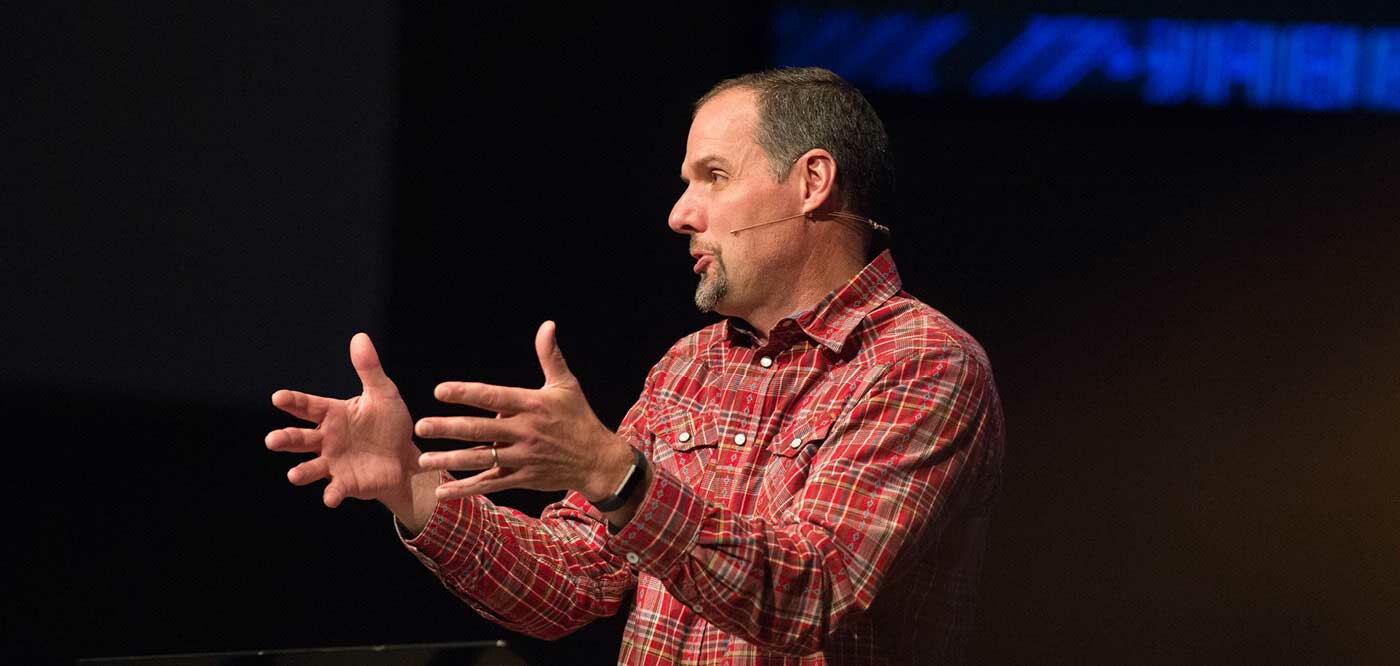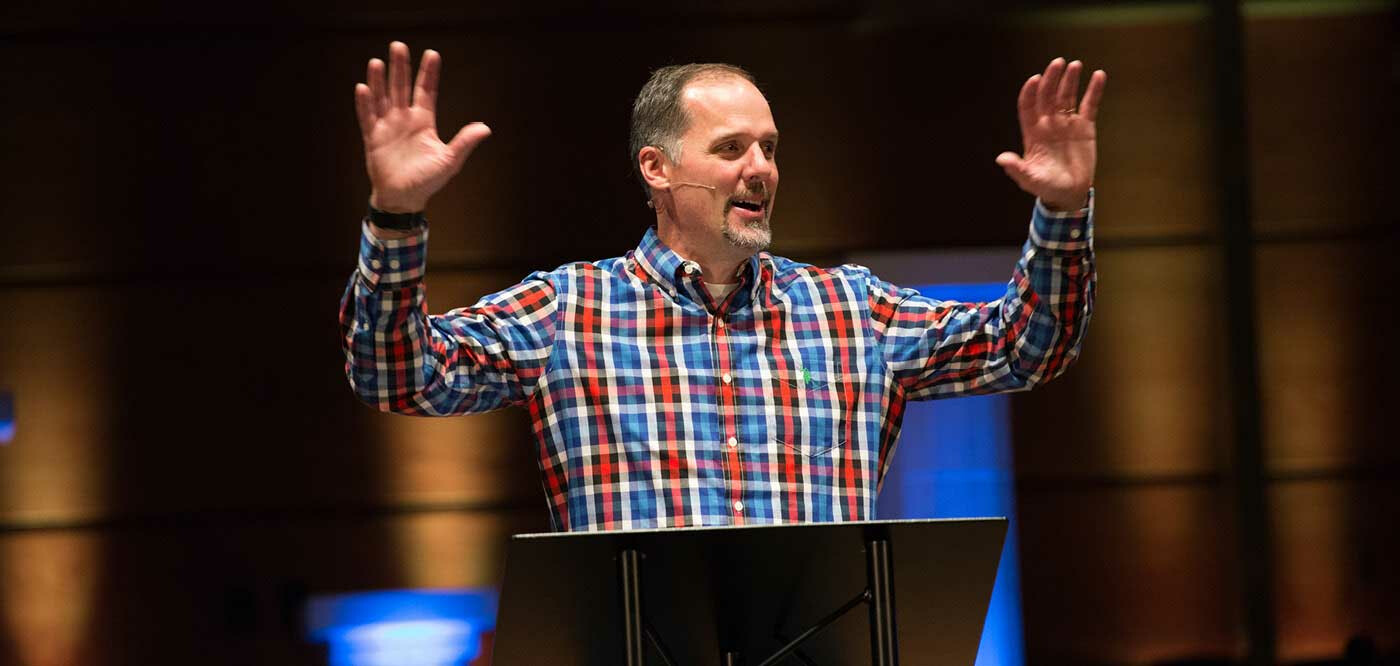
If you watch any number of superhero movies or TV shows on screens right now, you’ll likely encounter the idea of parallel universes or alternate timelines. This device of science fiction allows writers the leeway to create ever-expanding storylines where two or three (or millions!) of realities can coexist at one time.
In these universes, there is a convenient flexibility of facts. Someone can be both dead (in one universe) and alive (in another). And if there are infinite possibilities that branch off from infinite decisions, you may very well ask, “What really happened?” and receive the truthful response, “Everything!”
It’s possible today to treat religion in a similar fashion, believing that there is a subjective “multi-religion” where every claim to truth is equally valid. When we do this, we ignore that this “both and” sort of approach is not how the rest of reality works. If you step off a tall building unaided by a jetpack, you cannot both float in the air and fall to your death at the same moment. (Furthermore, the amount of faith you have in your own ability to transcend gravity unaided will not save you from the earth’s pull; the strength of faith means little if the object of faith has no power.)
Years ago, in a much less fictional setting than the multiverse, I was busy interviewing professors at my college for a writing assignment in which I was to identify a problem and propose a solution. I chose to focus on an over-filled campus parking lot. “What do you think causes the lack of available places to park?” I asked a professor as we sat in view of the packed lot. “Well,” he carefully responded, “I’d say it’s probably due to the law of physics which states that no two objects can occupy the exact same space at the exact same time.”
Some claims to truth don’t occupy the same space: “You are reading a blog post” and “God seeks a relationship with his creation,” are two true statements that don’t contradict each other. However, “Jesus was both fully man and fully God,” and “Jesus was simply a good man,”1 are contradictory claims that, much like cars in a lot, cannot occupy the same space at the same time. Here are some other truth claims that stand at odds with each other:
- Buddhism teaches that life and death are a continuum and a person’s consciousness may enter another body after death; Christians believe humans live but one life and have a final destination of either heaven or hell.
- Islam teaches an oath of belief, prayer, fasting, charity and pilgrimage as practices to earn your way to heaven; Christianity teaches that faith in Jesus alone can save a person.
- Jainism propones that everything always existed and there could not be a creator; Christians believe God brought everything into creation ex nihilo, meaning “out of nothing.”
- Scientologists believe that each person has within themselves the answers to the mysteries of life; Christians believe that the solution to their own fallen nature must come from outside themselves—namely, from Jesus.
So, there are distinct contradictory differences between religions that cannot both be true at the same time.
Nonetheless, it’s popular today to hold a plurality of beliefs. It’s true that arguing for equal validity for all religious beliefs can come across as well-intentioned, if not enlightened. Acceptance and equality are significant values in American culture. And we should absolutely value and love people! We should seek to live at peace with our neighbors, regardless of their beliefs; however, acceptance of people should not be confused with agreement on worldviews. In our avoidance of disagreements, the danger is that we also circumvent the truth. And truth matters more than good intentions.
Imagine a well-intentioned couple noticing their cat got lonely each day when they went to work. With the best intentions, they buy another pet to keep it company while they are away. Upon coming home from work the first day, they cannot find the cat anywhere but notice a suspicious lump in their new pet boa constrictor. The truth is that a large snake does not get along well with a cat. Their intentions were good! But the truth mattered more.
The good news is that God wants people to know the truth! In Romans 1, a pastor named Paul wrote about how many people intentionally turn their backs on God and “suppress the truth.” But God has intentionally made his existence evident to those who seek him:
“For what can be known about God is plain to them, because God has shown it to them. For his invisible attributes, namely, his eternal power and divine nature, have been clearly perceived, ever since the creation of the world, in the things that have been made.” –Romans 1:19–20
If you or someone you know is wondering about the reality of God and the claims of Christianity, here are a few next steps:
- Check your motives. God honors those who truly seek him, but you maybe have less success if you’re only looking to gather evidence to disprove God. Jeremiah 29:13 says, “You will seek me and find me when you seek me with all your heart.”
- Read the Bible. Seek the truth about God through his Word. Start with the accounts about Jesus—perhaps the book of John.
- Talk to God. Prayer doesn’t need to be fancy or formulaic. Simply start an honest conversation with God. Don’t be afraid to voice your questions, fears or frustrations. God can handle them!
- Talk with Jesus-followers. Talk with someone whose life has been changed because of their belief in Jesus. Share about your journey toward truth and ask them to share theirs.
For additional reading on the question “Aren’t all religions the same?” check out THIS BLOG POST.
1 C.S. Lewis disagreed that Jesus could, in fact, be just a good person, arguing that he was a Liar, a Lunatic or Lord. To read more about Lewis’ logic on this topic, go to https://www.bible.com/events/33062

About the Author
Sam Townsend
Sam Townsend is the High School Pastor at Calvary Church in Roseville, Minnesota. He is also a husband, father, writer, third-generation hotdog salesman, and purveyor of puns that could make a grown man groan. Sam is a graduate of University of Northwestern and Bethel Seminary.


